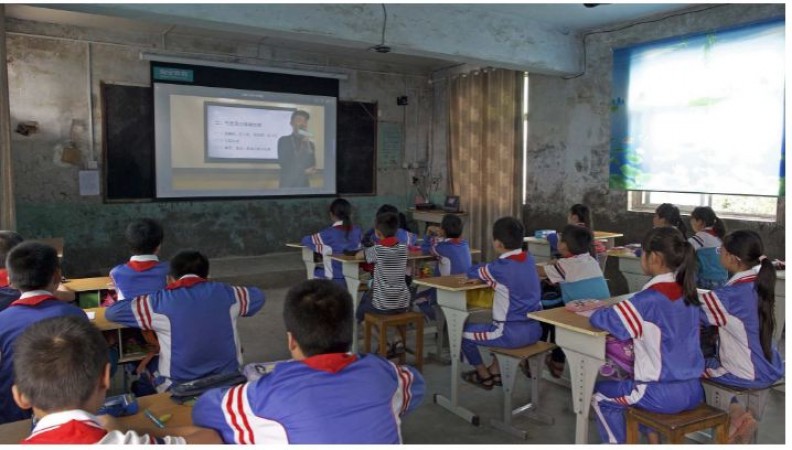
Jacob Peenikaparambil – Article: UNESCO’s “2021 State of the Education Report for India: No Teachers, No Class” has highlighted the fault lines in school education in some of the big states of India. A startling finding is that 1.1 lakh schools in India are single-teacher institutions. Equally astounding information is a total of 19% or 11.16 lakh teaching positions are vacant in schools in India and most of them are in rural areas. Similarly, almost all single-teacher schools are in rural areas, and the provision of school libraries and information and communication technology infrastructure is minimal in these schools.
The report has pointed out that there is a rural-urban disparity in education. Another drawback highlighted in the report is deployment under qualified teachers. The central message from the report is that education in rural areas is not paid sufficient attention or being neglected in some states.
In order to improve the quality of schools the report has given 10 recommendations, most of which are related to the training and deployment of qualified teachers and improved working conditions for them.
The rural urban divide can be noticed in almost all countries. In India this divide was highlighted some years ago by the farmer leader Sharad Joshi in the following words. “India lives in the cities and Bharat lives in the villages”. Education is an area where the urban-rural divide is very prominent. As a result, the rich people send their children for education to the urban centres. The educated, as well as the uneducated from the rural areas, migrate to the cities in search of employment. Thus the villages become poorer year by year. That is why Dr. A P J Abdul Kalam promoted the concept of PURA- Providing Urban Facilities in the Rural Areas. Unfortunately the governments and the political parties have not taken the concept seriously.
With an average age of 29 India has one of the youngest populations globally. Only if the young people are provided with adequate knowledge and skills through good quality education, India will be able to take the advantage of “demographic dividend”. Investing more money in education and improving the quality of education imparted through the government and private schools is an urgent need.
If more than 50% of graduates in India are not employable, the main reason is the foundation of education laid in the schools is weak. According to the eight edition of the India Skills Report (ISR) released recently, less than half of the Indian graduates are employable.
Education, especially school education, has not been a priority in India for our political parties. It does not find a prominent place in their manifestos. Reservation in higher education and jobs does not make sense, if the Scheduled Castes and Scheduled Tribes and Backward Caste students are not able to get good quality education in schools. In the absence of good quality school education only the creamy layer of these sections will benefit from reservation. If the ultimate goal of affirmative action through reservation is to be achieved, all members SC, ST and OBC should get equal opportunity for higher education and jobs through good quality school education.
Politics in India in recent years is centred on religion and caste, and governance issues like education, health care, employment generation etc. have taken a back seat. The poor people, who are often the victims of bad governance, also come under the influence of identity politics of caste and religion, and they fail to demand from the rulers their constitutional rights of good quality education and employment. Both of them are part of the right to life.
The UNESCO report 2021 invites the attention of the Central and the State governments to the urgent need for substantial improvement in school education.
Read More article from the Author: